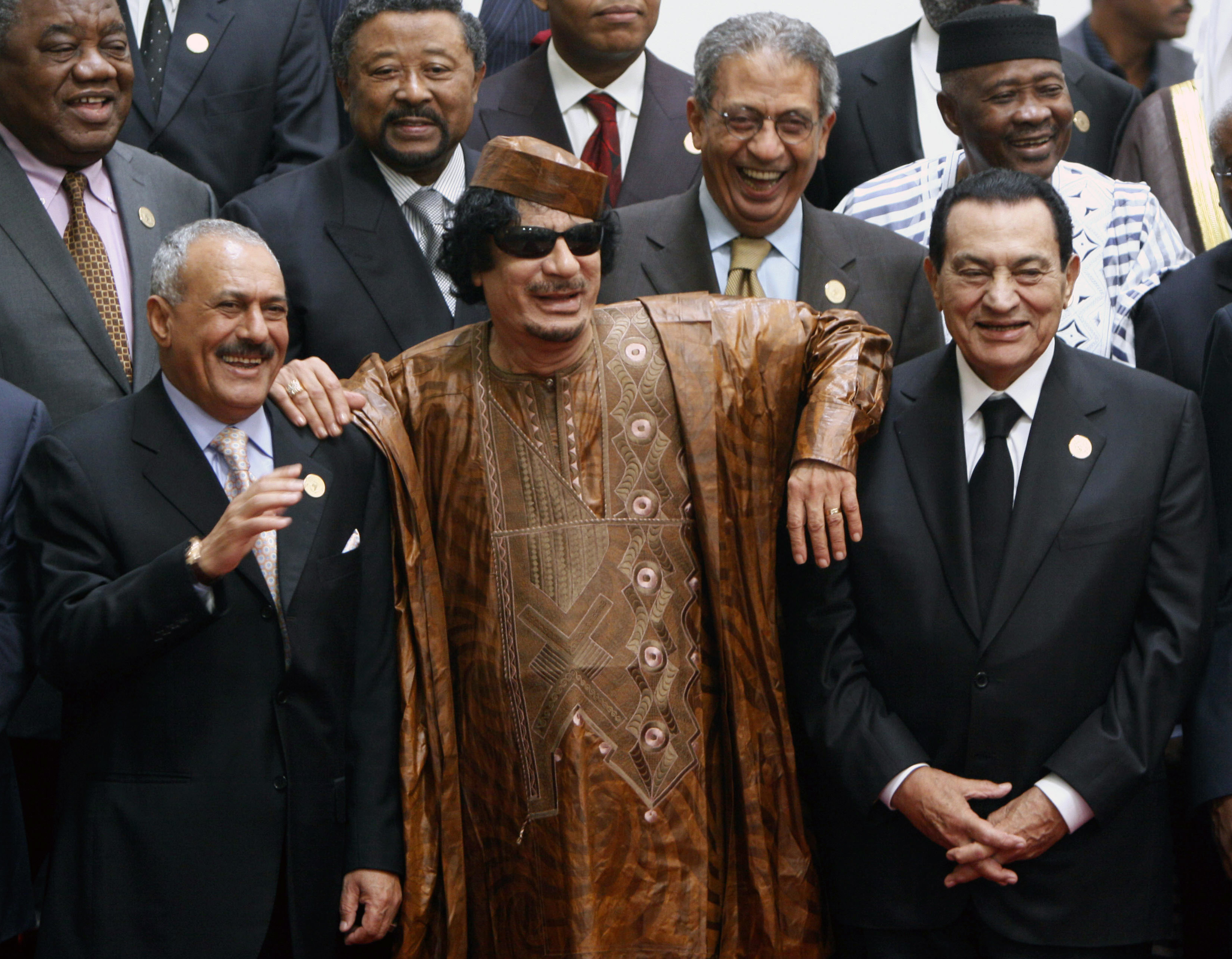 Libyan leader Moammar Gadhafi, center, with Egyptian President Hosni Mubarak, right, and his Yemeni counterpart Ali Abdullah Saleh, left, pose during a 2010 group picture with Arab and African leaders during the second Afro-Arab summit in Sirte, Libya. As rebels swarmed into Tripoli, Libya, and Gadhafi's son and one-time heir apparent Seif al-Islam was arrested, Gadhafi's rule was all but over, Western officials say.
Libyan leader Moammar Gadhafi, center, with Egyptian President Hosni Mubarak, right, and his Yemeni counterpart Ali Abdullah Saleh, left, pose during a 2010 group picture with Arab and African leaders during the second Afro-Arab summit in Sirte, Libya. As rebels swarmed into Tripoli, Libya, and Gadhafi's son and one-time heir apparent Seif al-Islam was arrested, Gadhafi's rule was all but over, Western officials say.Few Americans will lament the apparent removal from power of Libyan dictator Moammar Gadhafi, who has ruled that big North African country for four decades.
Besides oppressing his own people, his regime was behind the 1988 terrorist bombing of a Pan Am jet flying from London to New York. The bombing killed hundreds on board, including nearly 200 Americans, as well as 11 people on the ground where the plane crashed, in Lockerbie, Scotland.
Now, after a months-long uprising by rebels in Libya, Gadhafi is on the run. Rebels have seized control of much of the Libyan capital, Tripoli, and at this writing, Gadhafi appears to be in hiding. Several of his sons reportedly have been captured.
So it would appear that the rebellion -- aided by NATO air attacks involving some U.S. forces -- has at last driven Gadhafi from power.
That is a welcome development, but it does not offer much reassurance.
Some immediate questions have been raised, but none is more important than the question of who will succeed Gadhafi. While many of the rebels are seeking a freer society, the rebellion also has elements of the al-Qaida terrorist network. And some rebels have been accused by human rights groups of committing war crimes.
We cannot be sure that freedom and representative government are about to flourish in Libya. And it will prove disastrous if a regime even more troublesome than Gadhafi's should emerge. For comparison, an earlier uprising in Egypt removed tyrannical Hosni Mubarak, but now it appears Egypt may be ruled either by oppressive military leaders or by the radical Muslim Brotherhood. That's not a big improvement.
It also remains to be seen how Gadhafi's ouster will affect oil prices. Libya is a big supplier of oil, exporting, until the rebellion started, 1.5 million barrels per day. When the fight against Gadhafi broke out, oil was selling at $84 a barrel. Then, with the disruption, the price rose to $110 a barrel. It has since fallen somewhat. Where prices go next will be of great interest to Americans paying well over $3 for a gallon of gas.
We are reminded once again that events in faraway places affect us all, in significant ways.
